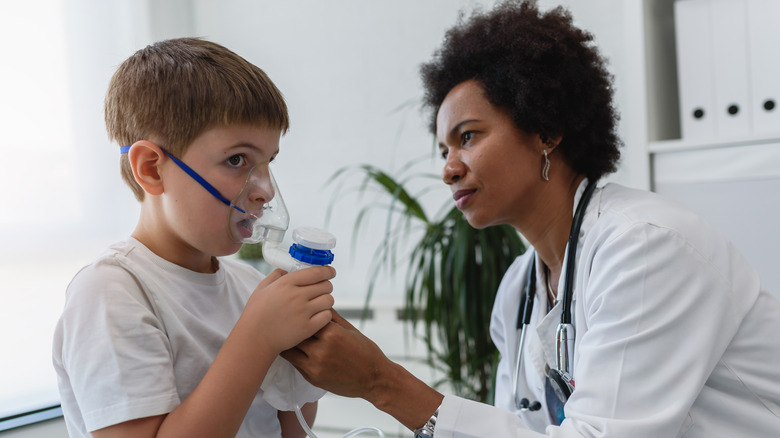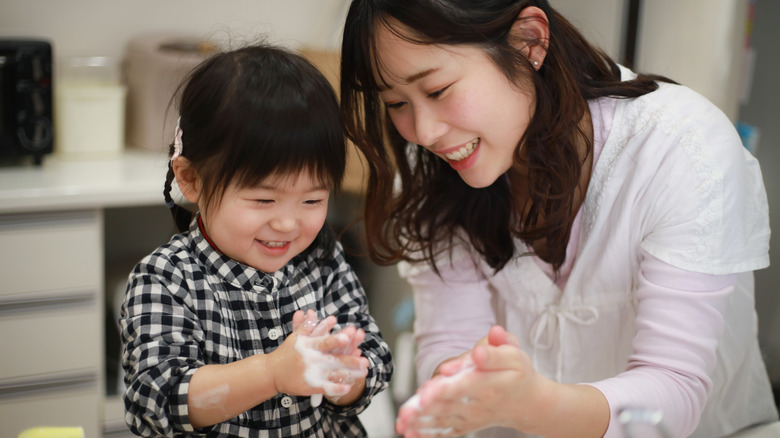What To Know About The RSV Surge And How To Best Protect Your Family
Usually emerging during the fall season, a common cold-like virus known as respiratory syncytial virus (RSV) has seen a surge in case numbers amongst children early this year, reports NBC New York. Characterized by congestion, runny nose, fever, cough, headache, sneezing, and sore throat, experts at the Mayo Clinic explain that RSV infection is not uncommon, contracted by most children by their second birthday. However, NBC New York reports that cases began popping up earlier this summer, now resulting in hospital overwhelm in certain areas of the country.
Although most cases of RSV among adults and children alike resolve within one to two weeks, young babies are among those most susceptible to severe complications from the virus, reports the Mayo Clinic. "The ones who tend to get the most sick are the infants below four months. And then the ones who are older who tend to get most sick are those who have some other medical conditions," Dr. Sameer Kamath, chief medical officer for Duke Children's Hospital and Health Center, tells NBC News.
Exercising prevention against RSV infection
In more serious RSV cases, infants may experience difficulty breathing (per Mayo Clinic). Severe infection can also lead to cases of pneumonia or bronchiolitis, sometimes requiring hospitalization and oxygen support. Dr. Charlotte Boney, pediatrician-in-chief at Baystate Children's Hospital in Springfield, Massachusetts, told NBC News that the number of RSV-related hospitalizations they've been experiencing are surpassing those of past seasons. "We're really having a capacity problem like I've never seen before," Dr. Boney told the news outlet. In some areas of the country, hospitals report having reached ICU capacity and have had to transfer patients to out-of-state facilities.
Because the virus can be transferred through cough and sneeze particles, as well as contact with contaminated surfaces, experts at the U.S. Centers for Disease Control and Prevention (CDC) suggest taking preventative measures to help keep individuals and families protected. Such measures include covering your mouth when coughing or sneezing, sanitizing frequently touched surfaces, avoiding close contact with infected persons, and limiting a child's time in environments where the risk of transfer is high, such as child-care settings. Above all else, however, experts remind individuals to engage in regular hand-washing. "Hand hygiene is the single most important thing that we can do to keep ourselves and others safe," infection preventionist Dr. Mallory Davis tells CNN.


